Ethics Hub
Scenario: Your client asks you to do something unprofessional
You have been instructed by Green & Geller, a firm of solicitors, in an action brought by a small local charity. The action was successful.
As you are drafting a bill of costs on behalf of Green & Geller’s client, you notice that Green & Geller have invoiced the client for several hours of work by Partner A, but you can see from the files that much of this work was actually carried out by Senior Associate B.
You have queried this with Green & Geller, pointing out that the error will have a financial impact on the charity. Green & Geller say that the difference in the hourly rate of Partner A and Senior Associate B is minor, and the total bill is still within the client’s budget. They say they are not prepared to change the invoice on this basis.
What would you do?
Would your approach differ if the client was a business or lay client?
- In this situation, Green & Geller’s decision not to adjust the invoice will cause the charity financial detriment, which would not be in the client’s best interests. Going along with Green & Gellar’s decision is also likely to infringe Principle 2 of the Code of Conduct, which requires you to promote the proper administration of justice. It also presents a conflict between Green & Geller’s interests (not changing the invoice) and the client’s.
- Principle 3.1 of the Code of Conduct is clear that you must act in the best interests of your client regardless of the consequences for your professional client or other intermediary.
- In this scenario, you should inform the charity of the error and take their instructions about how to draft the bill of costs. If the client wishes to take issue with the invoice from their solicitors, they can raise this with them directly. If you believe the conduct of Green & Geller breaches the SRA’s Code of Conduct for Firms, you should also notify the SRA of the potential regulatory breach. You should take this approach regardless of the size or type of client.
- Principle 1.1 – You must act honestly and with integrity, not only in your professional life but also in your private life where your behaviour might reasonably be considered to undermine your adherence to the core ethical principles of the profession.
- Principle 1.7 – You must not act in any way which is likely to diminish the trust the public places in you or in the profession of Costs Lawyers.
- Principle 2.5 – You must support the proper administration of justice by promoting the appropriate and cost-effective use of the resources of the court and the parties.
- Principle 3.1 – You must act at all times in the best interests of your client, except where this conflicts with your duty to act independently in the interests of the proper administration of justice or where otherwise permitted by law. You must act in the best interests of your client regardless of the consequences for your professional client or other intermediary. You must not permit a professional client, employer or any other person to limit your ability to fulfil this duty.
- Principle 3.1a – You must decline to accept an instruction from a client or, if you have already accepted an instruction, you must cease to act if:
- it would not be in the client’s best interests for you to act;
- your own interests conflict with your duty to act in the best interests of the client in relation to the instruction, or there is a significant risk of such a conflict arising during the course of the instruction; or
- the client’s interests conflict with those of another client. You may, however, act if each client has substantially common interests and has given informed consent.
See our resources on balancing the interests of your ultimate client and your professional client.
